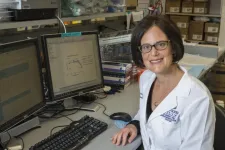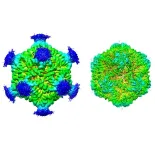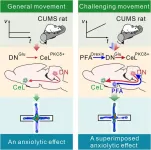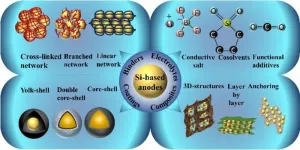Currently the global plastics system results in over 1 gigatonnes per annum (Gt/annum) of carbon dioxide equivalent emissions which is the same as the total combined emissions of Europe’s three largest economies (UK, Germany and France) [1]. If left unchecked, these emissions could rise to 4-5 Gt/annum with other sources of pollution also causing concern [2]. Another problem is the lack of effective recycling – in 2019, only 9% of the world's plastic waste was turned into new products through mechanical recycling. The majority ended up in landfills or was incinerated, and a significant proportion was mismanaged, ending up polluting terrestrial and marine ecosystems [3].
The authors analyse the current and future global plastics system, proposing technical, legal, and economic interventions from now until 2050 to allow it to transition to net zero emissions and to reduce other negative environmental impacts. The study includes a future scenario centred on four targets:
Reducing future plastics demand by one half, substituting and eliminating over-use of plastic materials and products. Changing the way plastics are manufactured to replace fossil fuels as the hydrocarbon source to use only renewably raw materials, including waste biomass and carbon dioxide. For plastics which are recoverable, maximising recycling very significantly, targeting 95% recycling of those materials which are retrievable from wastes. Integrating plastic manufacturing and recycling with renewable power and minimising all other negative environmental impacts, including of additives. The authors emphasise the need for concerted action across all four target areas to ensure the global plastics systems curbs its climate impacts and meets UN Sustainable Development Goals.
Charlotte Williams, Professor of Chemistry at the University of Oxford’s Department of Chemistry and lead author said:
‘We need plastics and polymers, including for future low emission technologies like electric vehicles, wind turbines, and for many essential everyday materials. Our current global plastics system is completely unsustainable, and we need to be implementing these series of very bold measures at scale, and fast. This is a solvable problem but it needs coherent and combined action, particularly from chemical manufacturers.’
To successfully transition the plastics system, the authors set out principles to ensure ‘smart materials design’ and differentiate between plastics which are recoverable and irretrievable after use, noting that there is not a one size fits all solution. Rather, the authors propose careful use of the design principles to help select the optimum production methods and appropriate use of resources, deliver the required performances, ensure waste management, and minimise broader environmental impacts. A timeline of technical-economic-policy and legal interventions helps readers focus on the actions needed to reach net zero emissions by 2050.
‘The time for action has arrived, we cannot afford to wait any longer,’ study co-author Fernando Vidal, Postdoctoral Researcher in Chemistry at POLYMAT in Spain and former Oxford Martin School Fellow on the Future of Plastics concluded.
‘We must change our concepts around the way we make, use, and dispose of plastics, otherwise we risk perpetuating this problem. The upcoming UN Global Plastic Treaty is the opportunity to make a lasting change in the right direction.’
Study co-author Cameron Hepburn, Battcock Professor of Environmental Economics at the Oxford’s Smith School of Enterprise and the Environment, said: ‘The problem is that plastics, while contributing hugely to global pollution and greenhouse gas emissions, are extraordinarily useful. Our research finds that creating a circular economy for plastics in order to reduce their negative impacts is possible, but only if we can reduce future demand by half, switch to renewable plastics that aren’t made from fossil fuels, recycle 95% of what’s left, and minimise environmental impacts at every step of the process.
‘The challenge is enormous, but we present a roadmap to transform the whole system, including through the smart design of plastics, economic and legal interventions, and a shift away from overconsumption.’
The paper ‘Designing a Circular Carbon and Plastics Economy for a Sustainable Future’ can be read here (only after embargo lifts) – https://www.nature.com/articles/s41586-023-06939-z
-ENDS-
Notes to Editors
For an interview with the researchers or further information, including to see a copy of the paper, please contact Amjad Parkar on amjad.parkar@oxfordmartin.ox.ac.uk or Roger Gray on roger.gray@oxfordmartin.ox.ac.uk.
References:
[1] https://www.nature.com/articles/s41558-019-0459-z
[2] https://www.nature.com/articles/s41893-022-01054-9
[3] https://www.oecd-ilibrary.org/environment/global-plastics-outlook_de747aef-en
About the Oxford Martin Programme on the Future of Plastics
The Oxford Martin Programme on the Future of Plastics tackles the challenge of plastic pollution by advocating for a shift to a fully sustainable plastics economy. With a focus on interdisciplinary collaboration, the programme provides technical, economic, and legal research and solutions to the issues surrounding plastics’ lifecycle. It is developing innovative materials prepared from carbon dioxide and biomass, delivering performance as elastomers, plastics, adhesives and surfactants, exploring efficient recycling, and producing innovative biodegradable materials for applications where environmental dissipation is inevitable. The programme brings together researchers in the University of Oxford departments of Chemistry, Environmental Economics, and Law.
About the Oxford Martin School
The Oxford Martin School is a world-leading research department of the University of Oxford. Its 200 academics work across more than 30 pioneering research programmes to find solutions to the world's most urgent challenges. It supports novel and high-risk projects that often do not fit within conventional funding channels, with the belief that breaking boundaries and fostering innovative collaborations can dramatically improve the wellbeing of this and future generations. Underpinning all our research is the need to translate academic excellence into impact – from innovations in science, medicine, and technology, through to providing expert advice and policy recommendations.
About the Smith School of Enterprise and the Environment
The Smith School of Enterprise and the Environment at the University of Oxford equips enterprise to achieve net zero emissions and the sustainable development goals, through world-leading research, teaching and partnerships. Find out more at www.smithschool.ox.ac.uk
About the Department of Chemistry, University of Oxford
The department’s mission is to advance the global understanding of chemistry, and to use that knowledge to address major challenges for society. Find out more at www.chem.ox.ac.uk
END






